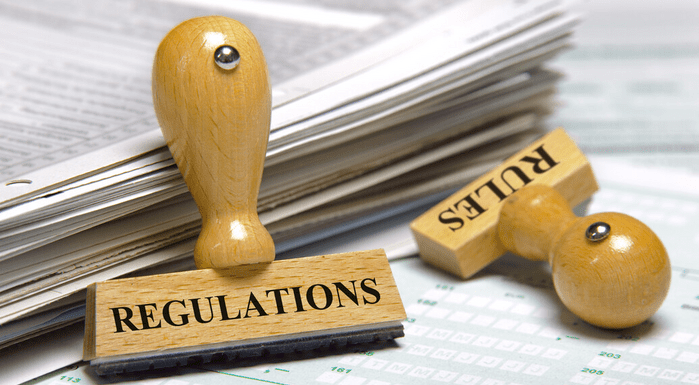Whitehall must lead from the top in tackling fraud and corruption and do more to recover losses, as public confidence in the integrity of government comes under threat, a new report published by the Public Accounts Committee has warned.
Fraud prevention should be embedded into the design and delivery of public services rather than being left to counter-fraud technical experts alone, the report urges. Meanwhile, senior officials across government must demonstrate leadership, build in preventative approaches to their operations and start to give the public the impression that they are serious about fighting fraud.
The UK has fallen to 18th out of 180 countries in 2022 for perceived corruption levels (from eighth in 2017), according to Transparency International. “We are concerned to hear that 27% of public bodies are still clearly underinvesting in counter-fraud and only 6% can demonstrate that they are achieving the expected value for money from their counter-fraud work,” the report adds.
The case for investment in fraud prevention is supported by a March 2023 National Audit Office (NAO) report on tackling fraud and corruption against government, which found that most funds lost to fraud are not recovered. However, two-thirds of staff working in government counter-fraud functions are fraud investigators, so it is right that the government looks to invest in risk assessment and prevention.
The PAC report also warns that the government remains largely in the dark about the extent of its exposure to fraud and corruption, with its current system of fraud measurement failing to show where the problems are, or which public bodies are most affected.
Despite not having specific estimates for two thirds of government expenditure, the Public Sector Fraud Authority (PSFA) estimates that fraud and error levels for that expenditure is somewhere between 0.5% and 5%.
This implies that, in addition to the estimated £10bn of tax fraud and £6.4bn of benefit fraud lost in 2022-23, between £2.5bn and £28.5bn was also lost to fraud and error - without knowing exactly where or how. The PAC is calling for an annual strategic intelligence report on fraud and corruption levels across government.
Although controls over public funds were relaxed to distribute pandemic support schemes, the report finds that basic public accountability standards could have been maintained, even at COVID’s height. The PAC is calling on the Treasury to explain how it will embed counter-fraud processes to help public bodies address vulnerabilities sooner.
Dame Meg Hillier MP, Chair of the Committee, said the government is flying blind on the levels of fraud and corruption perpetrated against it, despite widespread awareness of the toxic threat posed by these despicable crimes.
“The Cabinet Office has blamed worsening public perceptions of the UK’s fraud and corruption on ‘noisy reporting’ from the media. It is time for some noisy reporting back from the most senior government officials on quite how seriously it is tackling this worsening problem, with examples of fraud not being allowed to go unpunished.”
“The risk of fraud and corruption in public life should be spurring government to recognise and prepare for it as an ongoing risk, rather than simply accepting it,” Hillier added. “If senior officials and politicians simply shrug their shoulders and look away in the face of these outrages, then malign actors will continue to pick away not just at the public purse, but at the bonds of trust that knit us together as a society.”
The need to focus on fraud prevention, measurement and risk assessment is one of the main points made by ICAEW in its written evidence to the PAC enquiry submitted in May. Laura Hough, Director, Trust and Ethics at ICAEW, said: “We welcome the recognition that more needs to be done to understand the problem, assess the nature of the risks faced and to support investment in the prevention of fraud, rather than solely trying to investigate our way out of the problem.”
Meanwhile, the PAC report warns that, although central government often relies on local government to manage fraud risks on its behalf, it does little to support local authorities’ capability to do so – a point made by ICAEW in its submission to the PAC inquiry.
In its May submission, ICAEW welcomed the transformation of the Government Counter Fraud Function (GCFF) within the Cabinet Office to the PSFA in August 2022 as a positive step. “The PSFA’s mandate includes important functions that were not carried out previously by GCFF, strengthening the UK government’s response to fraud and error. This includes providing data analysis services to ‘targeted’ departments and operating a central enforcement unit,” ICAEW said.
However, ICAEW voiced concerns that the PSFA’s remit is too narrow and does not cover a significant proportion of public spending. It also warned that the PSFA’s budget – currently £16.7m per year – is inadequate for the PSFA to achieve its important objectives.
Use of technology and better data sharing across public sector bodies are also critical to fraud prevention, ICAEW believes, and it urged the government to look to the private sector on best practice methods to combat fraud.
• Read the full PAC report, Tackling fraud and corruption against government.
Economic crime hub
In these articles and videos, we explore the latest trends and perspectives on economic crime from around the world, and look at how chartered accountants can help prevent it happening.




